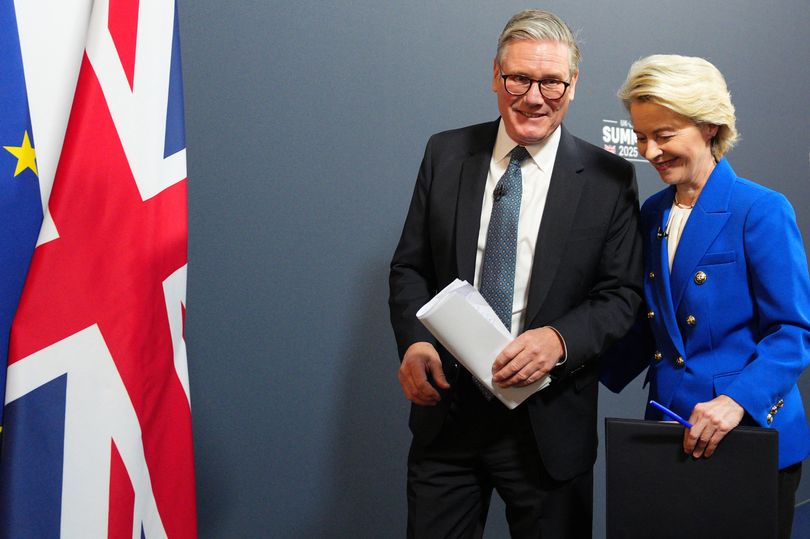There are a number of uncertainties about this week’s reset deal between the UK and the EU, but one thing we can be fairly certain of is that one of the main economic benefits, either for the UK overall or Northern Ireland separately, is the impact on agriculture and food products.
Once implemented, the new arrangements should provide for fairly seamless movement of food products from GB to the Continent and in the reverse direction.
Importantly, from a Northern Ireland point of view, because the UK overall will now be applying EU SPS (food and animal) standards, this should remove almost all of the checks on agricultural and food products moving across what has become the Irish Sea Border (and, similarly, for plants).
READ MORE: Hopes Northern Ireland’s largest fishing port to get slice of £360m UK grant
READ MORE: Belfast bin lorry street access pilot programme not going to plan
This removal of frictions on the trade in food between GB and the EU will contribute much of the £9bn economic gain which the Government projects by 2040.
Admittedly, there are some costs which may not be so obvious. The UK, including Northern Ireland, is certainly going to become a rule-taker with respect to EU food policies. If disputes emerge, the UK will be subject to the oversight of the European Court of Justice.
The UK has promised to “dynamically align” to any future changes in EU food regulations. Whether that means we are ruling out the UK using new food technologies like gene editing seems unclear.
If farming is the apparent “winner”, the obvious “loser” in Monday’s deal is UK fishing, as the Continental fish fleets will continue to get access to British waters until 2038.
Fishing is a relatively small economic sector, representing about 0.04% of UK GDP (or slightly more in Northern Ireland, 0.06%). The UK government is promising a generous subsidy for the sector (does that include Northern Ireland?), but presumably the workers would have preferred simply to catch more fish in UK waters.
Northern Ireland already has a single electricity market arrangement with the Republic of Ireland. This week’s deal provides for the UK to merge with the EU’s carbon trading arrangements and may foreshadow GB moving closer to the EU’s energy single market. In the absence of this arrangement, the UK would have been paying £800m annually on goods exported to the EU, and such carbon trading would have had scope to create big problems for Northern Ireland’s trade flows North-South and East-West.
Very importantly, while this deal has important implications for the trading of food products from GB to Northern Ireland, it will not remove all the other Irish Sea border trade frictions relating to goods of GB origin being brought into Northern Ireland.
There are many uncertainties relating to this deal. Aside from the important question of when it will come into force (given the need for legislation, probably not for several years), a lot of the details have to be further negotiated.. For example, how many EU visitors will be allowed through the Youth Mobility scheme, what fees would EU students pay when the UK (re-)joins the EU’s Erasmus student programme, when will British air travellers be able to use EU e-gates and what is the “subscription fee” which the UK is paying to be allowed to bid for the EU’s Euros 150bn rearmament fund? Here in Northern Ireland, over the years, we have become rather used to the problems generated by a “nothing is agreed until everything is agreed” approach, but we might be quite surprised by an agreement which has quite a few holes throughout its structure.
To be fair to PM Starmer, he is now trying to balance the three spinning plates of trade deals with the USA, India and the EU. This will require quite a lot of agility.”
For all the latest news, visit the Belfast Live homepage here and sign up to our politics newsletter here.
